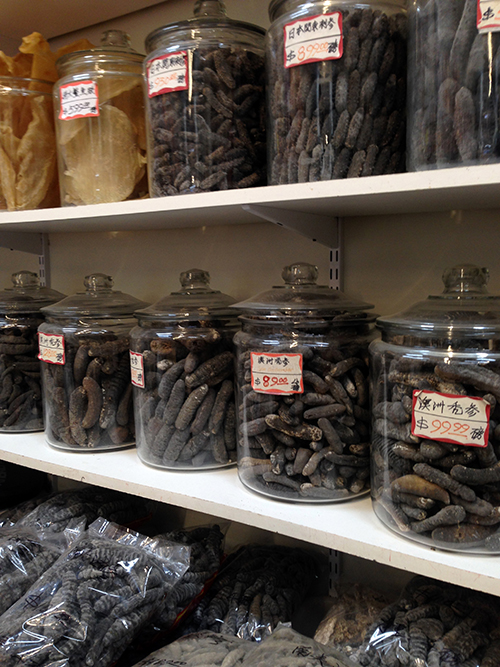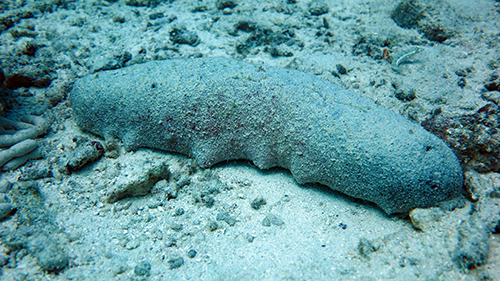Overharvest has put the Great Barrier Reef's tropical sea cucumber populations in peril, researchers have revealed, with strong demand for this delicacy from East and Southeast Asia.
A team led by The University of Queensland's Dr Kenny Wolfe said fishery data collected along Australia's primary sea cucumber fishing ground showed the need for regulatory changes.
"The Great Barrier Reef is home to 10 of the world's 16 endangered or vulnerable sea cucumber species," Dr Wolfe said.
"The data shows populations of some of the highest-valued species have been dwindling due to increasing and persistent global overharvest."
"They're seen as a delicacy to some, but sea cucumbers are the earthworms or vacuums of the sea, helping keep the seafloor clean and productive - they're critical for healthy ocean ecosystems."
One fast-disappearing group of tropical sea cucumbers, known as teatfish, was of particular concern.
"Teatfish are listed on CITES - the Convention on International Trade in Endangered Species - which provides a strong basis to restrict their harvest and export," Dr Wolfe said.
 "Yet two of these species, the white and black teatfish, represented more than 20 per cent of the Queensland fishery's recent total catch.
"Yet two of these species, the white and black teatfish, represented more than 20 per cent of the Queensland fishery's recent total catch.
"Populations of teatfish are most at risk because of their high market value and poor reproduction.
"In fact, black teatfish numbers have not recovered since their fishery was closed in 1999 due to overharvest - although the fishery reopened in 2019.
"In December 2021, we saw a ray of hope, when the federal Minister for the Environment Sussan Ley supported the CITES listing, and in recognition of their perilous state determined that black teatfish harvest would not be permitted.
"It's a great win for one of our 10 endangered or vulnerable sea cucumbers, but further policy interventions are needed to ensure other sea cucumber populations don't start teetering toward extinction."
Fellow investigator, Professor Maria Byrne from The University of Sydney, said effective statutory regulation was essential for protecting sea cucumbers.
"The Great Barrier Reef sea cucumber fishery has long been operating under what's known as a non-regulatory - and therefore a non-binding - Performance Measurement System," Professor Byrne said.
 "This system recommended regular assessment of sea cucumber stocks, but these weren't done, so industry has been operating without any real idea of their harvests' impact on stock sustainability.
"This system recommended regular assessment of sea cucumber stocks, but these weren't done, so industry has been operating without any real idea of their harvests' impact on stock sustainability.
"Going forward it'll be essential to have a statutory regulated and enforced policy framework for regular independent stock assessments for all tropical sea cucumber species harvested on the Great Barrier Reef.
"Only then would we be able to assess what is sustainable harvest and identify species-specific interventions, hopefully avoiding local extinction of these ecologically important sea cucumber species on the Great Barrier Reef."
"This is essential for the health of the reef and provides an important contribution to meeting the Australian and Queensland Governments' Reef 2050 plan, ensuring the UNESCO "at-risk" status of the Great Barrier Reef is avoided, and for Queensland Department of Agriculture and Fisheries to meet its latest Sustainable Fisheries Strategy."
The research has been published in Biological Conservation (DOI: doi.org/10.1016/j.biocon.2022.109451).
Image above left: Sea cucumbers are expensive and most often exported and old as a dried product. Credit: Dr Kenny Wolfe.






